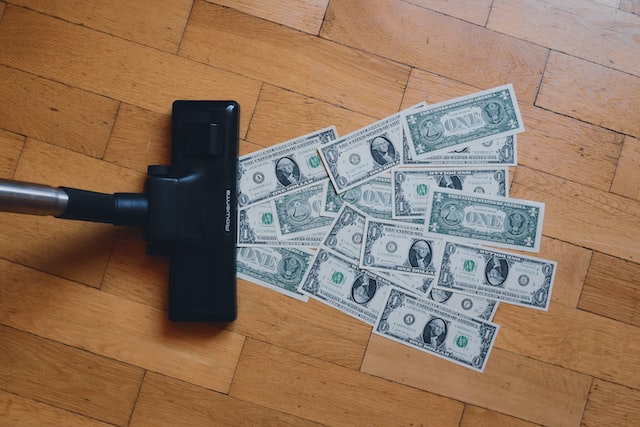If you are thinking about obtaining hazard insurance for your business, you may be wondering what exactly it is and what you can expect to receive from it. There are several things you should know about this type of coverage, including cost, coverage, and exclusions.
Coverage
Whether you are a small business or a large enterprise, you want to make sure your property is protected from a range of hazards. This can help you avoid losses and maintain smooth operations. Business hazard insurance, or business property insurance, can be just the ticket.
The cost of hazard insurance will vary depending on the amount of coverage you need and the location of your business. A standard policy may not cover certain types of risks such as fire or vandalism. It is best to find out exactly what your insurance carrier covers before purchasing a policy.
One way to determine the most affordable way to insure your business is to shop around. There are several insurance providers, and comparing quotes from each will help you decide which one is right for your particular needs.

To compare different companies, you can also look online. Some of the better business insurance sites include CoverWallet, Huckleberry, Insureon, and Progressive.
An independent insurance agent can evaluate your company’s needs and recommend the hazard insurance that will best protect your business. Taking the time to choose a reputable and trustworthy provider will ensure you get the coverage you need, at the lowest possible price.
Most homeowners and business hazard insurance carriers will not cover fire, vandalism, or theft. However, there are add-ons that can be purchased to provide extra protection.
If you are a homeowner, you can also ask your insurer if you need a separate hazard policy. Depending on your home’s age, you may have regular sewer or water problems. Fortunately, this type of insurance will also include your home’s business-related contents.
Many lenders require hazard insurance when applying for a loan. Whether you are applying for an SBA loan or a mortgage, you should be able to verify that you have the requisite coverage.
For small businesses, hazard insurance is an important part of securing a loan. Not only will it protect your business, it will also be a tax-deductible expense.
Choosing the right policy for your needs isn’t always easy. Luckily, there are several options out there, and a smart agent can point you in the direction of a hazard insurance policy that meets your budget.
Exclusions from home insurance
Homeowners insurance policies include exclusions that can limit the types of damage you are covered for. These can vary from insurer to insurer and state to state. However, some exclusions are common to all insurance policies. Here are a few of the most common ones.
Floods are often excluded from home insurance. This is because homeowners need to purchase a separate flood policy in order to be insured for damage caused by floods. Also, standard homeowners insurance policies do not cover damage caused by earthquakes. In fact, homeowners in certain areas must purchase earthquake coverage separately.
War is also usually excluded from home insurance policies. Even though most people are aware of this fact, many people are surprised to learn that war damage is not covered by their insurance.
Despite the fact that these are common exclusions, homeowners may still want to add more coverage to their policy. Many companies offer endorsements that provide coverage for specific losses, including water and fire. The cost of adding these additional coverages will vary depending on the insurance company and your situation.
Mold is another common exclusion in most homeowners insurance policies. Mold is caused by moisture that is not properly maintained. It takes time for mold to grow, and a faulty plumbing system can encourage it to spread. Fortunately, you can add a rider to your insurance policy that provides coverage for mold remediation.
If you are a small business owner, you might be surprised to find that your business is not included in your home insurance policy. Some companies will allow you to purchase a separate business insurance policy to cover the structure of your home. While this is not a requirement, it is important to be aware of the options.
You can also find endorsements for high-value items. Depending on the policy, you can receive full replacement value for these items. For example, if you have an expensive car or boat, you might be able to get an endorsement that covers the cost of repairing it in the event of an accident.
Exclusions are a vital part of the insurance process. They are a way for insurance companies to write a comprehensive policy that will help you avoid unnecessary claims.
Replacement value vs actual cash value
One of the most important things to understand about insurance is the difference between Replacement value vs actual cash value. In the event that your property or equipment is destroyed, you need to know whether your insurer will replace the item with a brand new one, or if they’ll pay to repair it.
The cheapest option is replacement cost, but there are some advantages to buying an actual cash value policy. For example, it will make you feel better about not having to replace the entire building after a fire. Also, it can be cheaper for the insurer to provide this type of insurance. Nonetheless, you may have to shell out a few bucks to repair your property.
While replacement cost and actual cash value are similar, there are some key differences. This is why it’s important to choose the right type of coverage for your needs.
Generally, replacement cost is the more popular of the two. It is the cost required to restore your property to its pre-loss condition. On the other hand, actual cash value is the value of a property, minus depreciation. Basically, it is the amount needed to reinstall or replace a property at today’s prices.
Choosing the right coverage is not always easy, but it is worth the effort. An independent insurance agent can help you decide which coverage is best for your needs. They can also shop around for you to find the most affordable policy. And, they’ll answer any question you have. Whether you are a first-time home buyer or an experienced real estate investor, it’s never too early to learn more about how to protect your investments.
When shopping for an insurance policy, it’s essential to ask the right questions and to take advantage of any savings offers available. If you want the best protection for your investment, you should talk with an independent insurance agent. Otherwise, you might be stuck with a policy that doesn’t do a good job of protecting your hard-earned money. You should also get the right kind of business insurance if you own a small retail store, restaurant, or boutique hotel.
Cost
Purchasing hazard insurance for your business is a great way to protect your assets from disaster. It will cover your property from fire, theft, and wind. If your business is damaged or vandalized, you’ll be reimbursed for the cost to repair or replace your property.
The cost of hazard insurance for your business is dependent on the amount of coverage you purchase. For most businesses, the annual premium ranges between $53 and $63 monthly. However, the exact cost will depend on the deductible you choose and the additional add-on coverages you select.

Business property insurance is a specific type of hazard insurance that covers your business buildings and leased or owned equipment. Some companies will already include hazard insurance as part of their business property coverage.
The Small Business Administration (SBA) requires all small business owners to have hazard insurance. In addition, mortgage lenders require hazard insurance as well. Having hazard insurance can save your business from bankruptcy if you can’t afford to repair or replace your property.
Getting hazard insurance for your business is incredibly simple. As long as you have a deductible of at least $1,000, your coverage will kick in after you’ve paid the deductible.
To get a quote, talk to an independent insurance agent. They can compare different companies and find you the best price. Plus, they’ll cut through the jargon and help you understand the fine print.
When it comes to hazard insurance for your business, you should consider your business’s unique risks. For example, a large manufacturing business may have significant inventory that could be destroyed by fire. This can result in thousands of dollars of loss, and your business could close.
When you work with an independent agent, you’ll be able to find the best insurance coverage for your business at the lowest cost. Additionally, you’ll receive advice on how to reduce your risk.
Lastly, you’ll be able to review your coverage each year. An independent agent will also give you advice on how to increase your business’s coverage. Taking the time to ensure your business’s safety and security is an important part of running a successful business.
